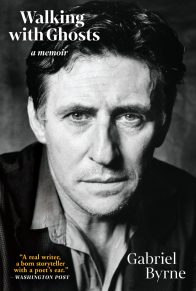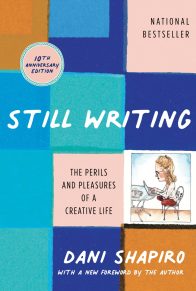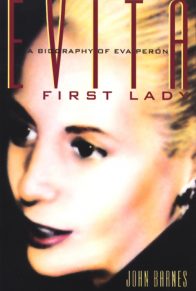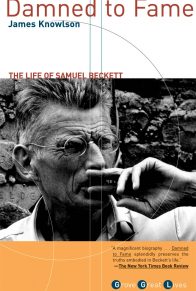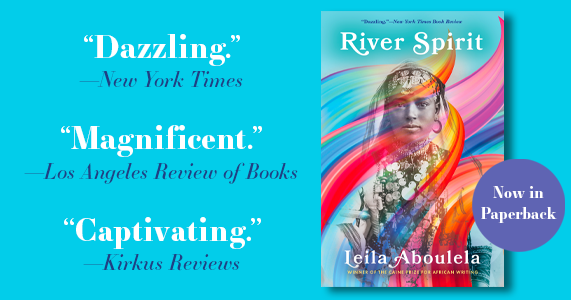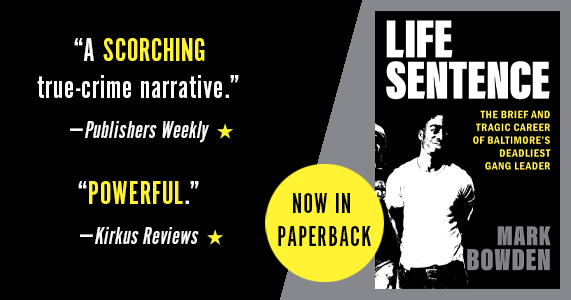It was as if the muscles inside my limbs were turning to jelly, as if soporific drugs were slowing the blood flow to my brain to a trickle, my thoughts to the haze of unconsciousness. I’d try to make it to the bedroom. The bedspread and walls were white, a Vermeer reproduction hung on the wall, the curtains were lace. And the room seemed foreign and familiar, like a tomb, like the women you sleep with in dreams. The bed oddly far away, like a mirage.
Jet lag? Perhaps. But the vertigo I felt seemed to come not just from the spinning of the earth but from a sense of hovering above the earth, from the very unreality of the country I had thought was my home.
I sat on the deck with a book on my lap, opened my eyes an hour later to the same page, a fly buzzing at my wrist. The sunlight off the lawn was blinding, the spaces between the houses immense, the sky an unbelievably wide expanse of blue. Where were the crowds, the small, cramped spaces of Tokyo? Susie, my wife, called from St. Paul to say she’d found a lead for an apartment. Her voice seemed to come from the depths of the ocean. The static on the line seemed the roar of the waves. I put on a tape, the score for Kurosawa’s Ran. The Noh flute calmed me, then made me edgy, as if I’d forgotten something. I saw some figure, some body, move near the window. Kathleen was at work, the house was empty. Her children had grown up and moved away. She was our surrogate mother. We’d returned like wayward children.
I pulled out the things I’d brought home from Japan. Journal entries, letters, a few poems. Programs, magazines. Photos. I mooned over them, wondered what the people in the photos were doing, worried about what would become of the pages, whether I’d ever be able to shape them into a coherent whole. The novel looked ragged and unfinished, like the hull of a ship rotting on the beach.
Once, I made the mistake of going to a shopping mall. It was the middle of the week, the walks were almost empty. A few baby strollers, the mothers pale, the clothes white and casual, loose around their bodies, their infants with bonnets or bare fuzzy heads. The stores were like warehouses, a stage set waiting for actors. I stopped in the chain bookstore. There was nothing there to read. I found a novel by Mishima–The Sailor Who Fell from Grace with the Sea.
I pulled out the sumie brush and ink, set them on the Formica kitchen table, spread the tissue-thin paper. I could not quite recall how the waterfalls were made. I thought briefly of practicing my standing meditation, but the idea of getting to my feet seemed a mythical task. The heat had hit ninety-five. I could feel the Japanese words slipping like droplets of sweat from my brow.
“I know,” said Susie. “It was hard for me too when I got back. But it’s not that bad now. You’ll get over it.”
The thing was, I did not want to get over it. This disequilibrium was like a cold you caught from a brief affair, the only proof of your passion.
2
I am a Sansei, a third-generation Japanese-American. In 1984, through luck and through some skills as a poet, I traveled to Japan. My reasons for going were not very clear.
At the time, I’d been working as an arts administrator in the Writers-in-the-Schools program, sending other writers to grade schools and high schools throughout Minnesota. It wasn’t taxing, but it didn’t provide the long stretches needed to plunge into my own work. I had applied for a U.S./Japan Creative Artist Exchange Fellowship mainly because I wanted time to write.
Japan? That was where my grandparents came from, it didn’t have much to do with my present life.
But then Japan had never seemed that important to me, even in childhood. On holidays when we would get together with relatives, I didn’t notice that the faces around me looked different from most of the faces at school. I didn’t notice that my grandfathers were in Japan, my grandmothers dead. No one spoke about them, just as no one spoke about Japan. We were American. It was the Fourth of July, Labor Day, Christmas. All I noticed was that the food we ate–-futomaki, mazegohan, teriyaki, kamaboko–was different from what I liked best–McDonald’s, pizza, hot dogs, tuna-fish salad.
For me Japan was cheap baseballs, Godzilla, weird sci-fi movies like Star Man, where you could see the strings that pulled him above his enemies, flying in front of a backdrop so poorly made even I, at eight, was conscious of the fakery. Then there were the endless hordes storming G.I.’s in war movies. Sometimes the Japanese hordes got mixed up in my mind with the Koreans, tiny Asians with squinty eyes mowed down in row after row by the steady shots of John Wayne or Richard Widmark. Before the television set, wearing my ever-present Cubs cap, I crouched near the sofa, saw the enemy surrounding me. I shouted to my men, hurled a grenade. I fired my gun. And the Japanese soldiers fell before me, one by one.
Of course, by the eighties, I was aware, as everyone else was, of Japan’s burgeoning power, its changing image–Toyota, Nissan, Sony, Toshiba, the economic, electronic, automotive miracle. Rather than savage barbarism the Japanese were now characterized by a frightening efficiency and a tireless energy. Japan was a monster of industrialization, of huge, world-hungry corporations. Unfair trade practices, the trade imbalance. Robot people.
But none of this had much to do with me. After all, I was a poet.
So, when I did win the fellowship, I felt I was going not as an ardent pilgrim, longing to return to the land of his grandparents, but more like a contestant on a quiz show who finds himself winning a trip to Bali or the Bahamas. Of course, I was pleased about the stipend, the plane fare for me and my wife, and the payments for Japanese lessons, both before the trip and during my stay. I was also excited that I had beat out several hundred candidates in literature and other fields for one of the six spots. But part of me wished the prize was Paris, not Tokyo. I would have preferred French bread and Brie over sashimi and rice, Baudelaire and Proust over Bash” and Kawabata, structuralism and Barthes over Zen and D. T. Suzuki. At least I had studied French in high school. And having grown up next door to Skokie, Illinois–the land of perpetual spring, a Rosenbloom on every corner–I knew more Yiddish than Japanese.
I had always been terrified of travel. In college it took me till my senior year to move to a new dorm. I’d lived in Minneapolis since then. My only other trip outside the country had been two weeks on an island off Cancun; my reaction to that trip was an astonished “I spent two weeks out of the country and did not die.” I feared places where ordering a meal would be a chore. I liked knowing directions and streets, not having to refer to a map wherever I went. I loved my friends; with strangers I was always uneasy and quiet, almost rude. A true landlocked Midwesterner, I wanted to read about the world. But go there? Never.
This contradiction remained. Much of my life I had insisted on my Americanness, had shunned most connections with Japan and felt proud I knew no Japanese; yet I was going to Japan as a poet, and my Japanese ancestry was there in my poems–my grandfather, the relocation camps, the hibakusha (victims of the atomic bomb), a picnic of Nisei (second-generation Japanese-Americans), my uncle who fought in the 442nd. True, the poems were written in blank verse, rather than haiku, tanka, or haibun. But perhaps it’s a bit disingenuous to say I had no longing to go to Japan; it was obvious my imagination had been traveling there for years, unconsciously swimming the Pacific, against the tide of my family’s emigration, my parents’ desire, after the internment camps, to forget the past.
Susie had none of my misgivings about our trip. After two years of a pediatrics residency, after weeks when she’d sometimes work two days straight on two hours’ sleep, she was eager for a break. Her father was a world expert on public health and had been one of the first American medical officials to visit Russia after the war, to visit the People’s Republic of China; he had taken her family on trips through Europe and imparted to his daughter a love of foreign places and exotic foods. For years, she had found my reluctance to travel stifling; just as she had converted me from a diet of pizza and hamburger to a range of the world’s cuisines, she kept hoping she could inject some nomadic impulse into my rooted Midwestern bones. Perhaps the trip to Japan would accomplish that.
And so she read eagerly through the travel books, notching the pages, making lists of places we would visit. She talked of the temples in Kyoto, of various festivals, of how she might take up tea ceremony, study shiatsu (acupressure), learn about the Japanese medical system. She left book after book on Japan by our bedside–all of which I ignored. While I was in New York studying Japanese at Columbia, she sent me articles on Japan, and after she joined me in the city, we argued when I wanted to see a film by Fassbinder or jazz in the Village rather than go to the Asian Cultural Society or to see Kabuki at the Met. It was she who arranged our tickets, she who dragged me shopping for the huge canvas hockey bags we were to use as luggage, she who had packed up our tiny bohemian apartment in the university section of Minneapolis.
This tension between us lasted until we left. After three days visiting my brother in L.A., having stayed up late the previous night talking, I packed at the last minute and planned on sleeping most of the flight. On the plane, Susie was nervous, excited. She wanted to go to the World’s Fair at Tsukuba immediately after we arrived. I said maybe, annoyed at her tendency to make plans. Maybe we’ll be too tired to do anything, I said. We argued briefly. Then I nodded off. My nervousness and excitement had gone inward, into somnolence. Over the next few hours, I dreamed of Mozart, Salieri, the images of Amadeus that flickered on the screen when I opened my eyes. I forgot where I was going. I was reading a book on Sartre, sentences about the lack of plot in Nausea, a new conception of action and event, dialogues stemming from the French Resistance. And by the end of the fourteen-hour plane ride, as we tumbled out into the terminal at Narita, I was exhausted and exhilarated. Frightened. Astonished that all the faces at customs looked like mine.





